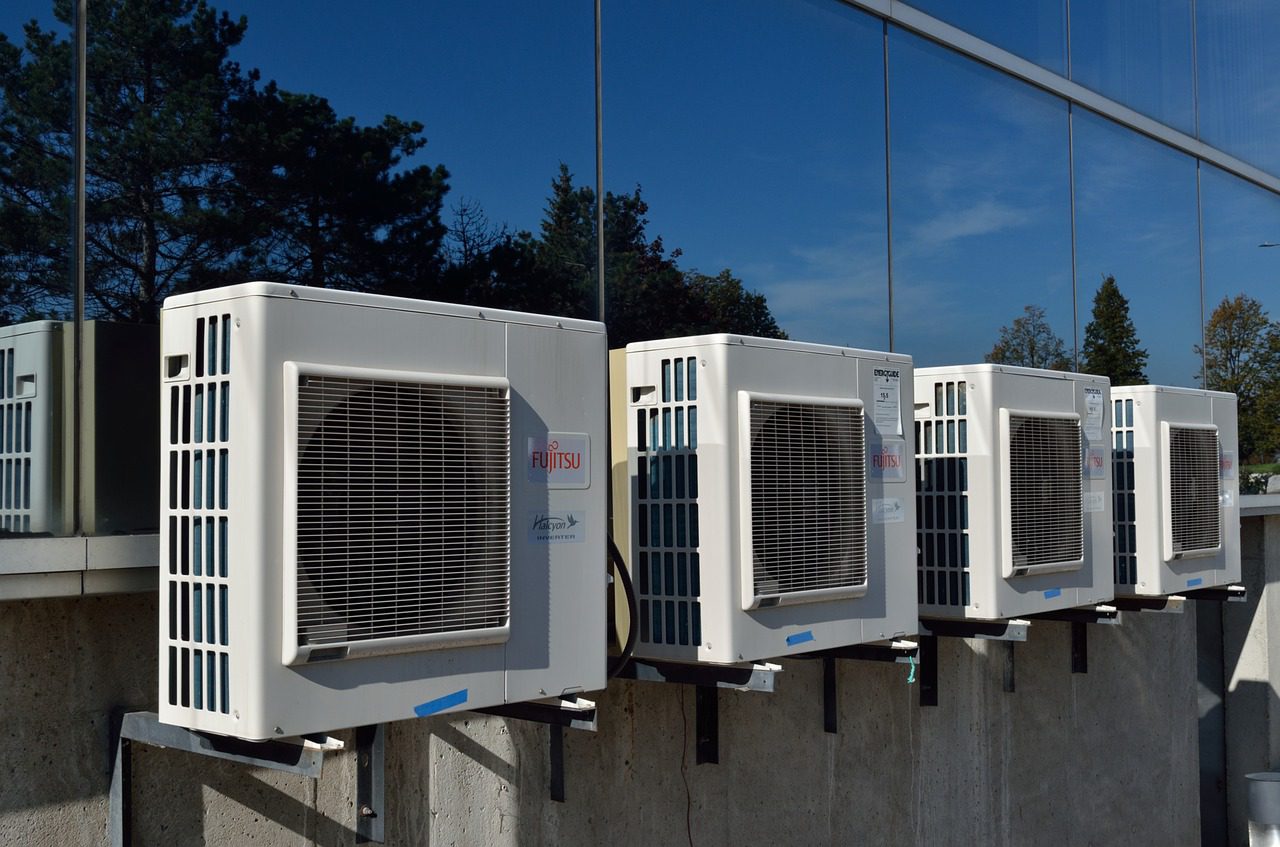Are Allergies Reportedly Better with Air Conditioning?
Did you ever wonder if your air conditioner was causing your allergies to pollen or dust mites? Your indoor air quality is a key factor in your health, especially if you have allergies. This article examines the connection between allergies and air conditioners and offers helpful advice on how to make sure your indoor air quality is healthy.
Can Air Conditioning Help Allegations?
Your allergies can be controlled by air conditioning. This is possible if the air conditioner is maintained and serviced regularly. As it filters indoor air, your air conditioner’s intake filter can remove many common allergy triggers like pollen and dust. An air conditioner can also control the humidity in your home to prevent mould growth, which is a common allergy.
Although air conditioning isn’t designed specifically to combat allergies, it can provide dry, filtered air that can be very helpful.
Are Allergies Caused by Air Conditioning?
How well your air conditioner has been maintained will determine how effective it is. Your allergies may be triggered if your air conditioner is not properly maintained. It is not usually the cause.
The most common symptoms of allergies to airborne particles are:
- Sneezing is often accompanied by a runny nose or blocked nose.
- Dry, itchy eyes, nose, or throat
- Postnasal drip and coughing
- Allergy shiners (dark circles under the eyes caused by increased blood flow to the sinuses).
- Breathing difficulty
- Watery eyes
- Conjunctivitis: Red-rimmed, swollen and crusty eyes.
- Airborne allergies are more common in older people, children, and those with respiratory problems.
These symptoms may indicate that your air conditioner needs to be cleaned. Or, better still, your air conditioner should be scheduled for maintenance.
Allergy relief with air conditioners
Your air conditioner can help you get rid of your allergies with a few simple adjustments. Here are some tips to ensure your air conditioner does not contribute to poor indoor air quality.
#1 Change the filter in your air conditioner
A clean air conditioner is the best for allergies. Although your air conditioner’s filters do a great job of keeping out pollen, dust and other allergens, over time, they can become less effective. It is important to change your old filter for a new one in order to keep your indoor air as allergy-free as possible.
Why is this important? Dirty filters can impede airflow and make your system work harder, which will increase your electricity costs. Your air conditioner may overheat if the filter is dirty.
How often should your AC filters be changed? Air conditioning technicians recommend that they be changed at the start of each season (cooling or heating season). You should change them every three months for the best results.
#2 Clean the vents of your ducted air conditioner
This tip is perfect for ducted air conditioners. Dust mites, mould, and dust can all live in your ducted AC’s register and return vents. Keep your ducted AC in top condition.
Switch off your ducted air conditioner unit
Use the brush attachment to clean your vacuum cleaner’s vents of dirt, dust, and other debris
Use a damp cloth to remove any mould or dust.
#3 Maintain a low humidity level in your home
Your home should have humidity levels between 30 per cent and 50 per cent. This ideal humidity level will prevent mould and bacteria growth, reduce dust mite infestation, and keep your home and family comfortable.
#4 Check your air conditioner for any leaks
Leakage in your air conditioner can lead to allergens. How can you tell? How can you tell if your air conditioner is leaking? To ensure that your home is well-filtered, ask your local air conditioning technician to inspect your air conditioner.
#5 Clean your air conditioner coils
Your air conditioner may have a damp cooling coil, humidifier or condensate tray. This could indicate that mould or mildew is growing within it. Your air conditioner coils should be cleaned at least once per year. We also recommend scheduling an annual service appointment with your technician to ensure that every part of your conditioner works as it should.
#6 Buy an indoor air purifying plant
We recommend purchasing air-purifying plants to compliment your air conditioner. Make sure to check the following:
A) Improves indoor air quality
b) It Doesn’t produce pollen which could make your allergies worse
The best houseplants to help allergy sufferers are chrysanthemums and peace lilies.
Final Thoughts: Does air conditioning help with allergies?
- Clean air conditioners can help you avoid allergies and improve indoor air quality in your home. We recommend the following:
- Change your air conditioner filters at a minimum once every six months. If possible, every three months.
- Clean your ducted air conditioner vents
- To prevent mould and bacteria growth, keep your home’s humidity between 30-50%
- Have your air conditioner inspected for leaks at least once per year during your annual service
- Clean your air conditioner coils at minimum once per year
- Purchase an indoor air purifier plant for your home
The bottom line: A well-maintained air conditioner can help improve air quality and reduce allergy symptoms.
Further Reading
How to Allergy-Proof Your World

Electrical Contractors in SE Queensland
Electrical contractors in Queensland offer a comprehensive range of services across residential, commercial, and industrial properties. From Electrical Safety and Compliance to Electrical Wiring for New Homes, they cater to various needs, ensuring that all properties are safely and efficiently powered.
Residential Electrical Services
- Electrical Installations
- Lighting, power points, ceiling fans, exhaust fans, and appliances.
- Home Automation
- Smart home systems, lighting control, security systems, and Home Theatre Installation & Setup.
- Switchboard Upgrades
- Replacing old fuse boxes with modern switchboards featuring safety switches.
- Rewiring
- Full or partial rewiring of homes, especially older properties.
- Electrical Inspections
- Safety checks, compliance inspections, and pre-purchase inspections.
- Surge Protection
- Installation of surge protectors to safeguard electronic devices.
- Smoke Alarm Installation, Testing & Inspections
- Compliance with Queensland legislation requiring interconnected photoelectric smoke alarms.
- Outdoor Lighting
- Garden lighting, pool lighting, and security lighting.
- Energy Efficiency Solutions
- LED lighting upgrades, solar panel installations, and energy audits.
- Fault Finding and Repairs
- Diagnosing and repairing electrical issues.
- Renovations and Extensions
- Electrical work for home renovations and extensions.
Commercial Electrical Services
- Commercial Lighting
- Installation of interior and exterior lighting, including LED lighting and emergency lighting.
- Data and Communications
- Cabling for internet, phone systems, and data networks.
- Electrical Fit-outs
- Electrical work for new offices, retail spaces, and other commercial properties.
- Power Distribution
- Installation and maintenance of electrical panels, transformers, and power distribution systems.
- Security Systems Wiring Installation
- CCTV, access control, and alarm systems.
- Electrical Maintenance
- Regular maintenance and testing of electrical systems.
- Energy Management Systems
- Installation and monitoring of systems to reduce energy consumption.
- Testing and Tagging
- Compliance testing and tagging of electrical equipment.
- UPS Systems
- Installation and maintenance of uninterruptible power supply systems.
- HVAC Systems
- Electrical wiring for heating, ventilation, and air conditioning systems.
Industrial Electrical Services
- Industrial Automation
- PLC programming, automation systems, and control panel installations.
- High Voltage Installations
- Installation and maintenance of high voltage systems and equipment.
- Machine Installations
- Electrical wiring and setup of industrial machinery.
- Electrical Maintenance
- Preventive and reactive maintenance for industrial electrical systems.
- Power Factor Correction
- Installation of equipment to improve power factor and reduce energy costs.
- Electrical Upgrades
- Upgrading electrical systems and infrastructure in industrial facilities.
- Instrumentation and Control
- Installation and maintenance of instrumentation and control systems.
- Emergency Power Systems
- Installation and maintenance of backup generators and other solutions.
- Hazardous Area Electrical Work
- Electrical work in hazardous environments, including explosive atmospheres.
- Electrical Design and Engineering
- Custom electrical system design and engineering services.
Additional Services Across Sectors
- Electrical Cost for New Home Construction
- Electrical Contractors For Building Sites
- Electrical Wiring Services
- Electrical Repair & Fault Finding Services
- Electrical Contractors For Real Estate & Property Managers
- Electrical Preventative Maintenance For Commercial & Industrial Machinery
- Three-Phase Power Upgrades & Installation
- Hot Water System Installation & Repairs Services
- Emergency & Exit Light Testing Electrical Services
- Kitchen & Bathroom Renovations Electrical Services
- Exhaust Fans & Bathroom Heating Installation Services
- Air Conditioning Services
- Electrical Appliance Installation
- Electrical Renovations & Extensions
- Electrical Safety Test Inspection
- Test and Tag Services
- Lighting Installation
- Power Point Installation, Upgrades & Replacement
- Switchboard Upgrade & Replacement
- Commercial Electrician
- Industrial Electrician
- Residential Electrician
- Home Automation Installations & Repairs
These services ensure that all properties, from homes to large industrial complexes, receive the highest level of electrical safety, efficiency, and innovation.

